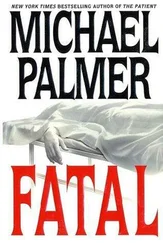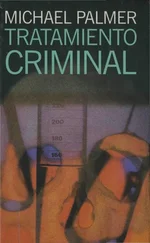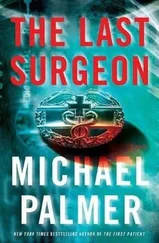Michael Palmer - Natural Causes
Здесь есть возможность читать онлайн «Michael Palmer - Natural Causes» весь текст электронной книги совершенно бесплатно (целиком полную версию без сокращений). В некоторых случаях можно слушать аудио, скачать через торрент в формате fb2 и присутствует краткое содержание. Жанр: Триллер, на английском языке. Описание произведения, (предисловие) а так же отзывы посетителей доступны на портале библиотеки ЛибКат.
- Название:Natural Causes
- Автор:
- Жанр:
- Год:неизвестен
- ISBN:нет данных
- Рейтинг книги:5 / 5. Голосов: 1
-
Избранное:Добавить в избранное
- Отзывы:
-
Ваша оценка:
- 100
- 1
- 2
- 3
- 4
- 5
Natural Causes: краткое содержание, описание и аннотация
Предлагаем к чтению аннотацию, описание, краткое содержание или предисловие (зависит от того, что написал сам автор книги «Natural Causes»). Если вы не нашли необходимую информацию о книге — напишите в комментариях, мы постараемся отыскать её.
Natural Causes — читать онлайн бесплатно полную книгу (весь текст) целиком
Ниже представлен текст книги, разбитый по страницам. Система сохранения места последней прочитанной страницы, позволяет с удобством читать онлайн бесплатно книгу «Natural Causes», без необходимости каждый раз заново искать на чём Вы остановились. Поставьте закладку, и сможете в любой момент перейти на страницу, на которой закончили чтение.
Интервал:
Закладка:
"And what do you make of that?" Snyder asked.
"Low-normal for this stage of labor, I would say. When she called me, Heidi reported that Lisa looked fine. So it's probably nothing."
Sarah saw concern in Snyder's eyes and immediately sensed that she had not taken the report seriously enough.
"The actual number may be low-normal," he said, "but in my experience, not many labor patients have that sort of pressure drop at this stage."
"I–I should have told you sooner, I guess," Sarah responded.
"Nonsense. I'm just a natural-born alarmist. I would suspect that you're right-the low pressure will probably turn out to be due to a little dehydration. You bring the OB tray. I'll bring the pedi one."
As they stepped from the car, they heard a siren, probably a block or so away. They were still on the tree belt when a police cruiser, strobes flashing, screeched around the corner and skidded to a halt behind the Volvo. A uniformed officer jumped out and, ignoring them, sprinted up toward the front door.
"Excuse me," Snyder called out as they hurried after the policeman, "I'm Dr. Randall Snyder from the Medical Center of Boston. What's going on?"
"I don't know, Doc," the officer said, panting. "But I'm glad you're here. We got a nine-one-one call that a woman was in serious trouble here and needed an ambulance. One should be arriving any minute."
"The woman's name?" Sarah asked, aware of a sudden knot in her chest.
The policeman rang the bell several times and then began rapping on the glass panel of the front door.
"Summer," he said. "Lisa Summer."
… The real stress on this job: the cases that don't come out right, the people with untreatable illness, the people who die in spite of everything we do…
Randall Snyder's words echoed in her thoughts as Sarah followed the policeman and Heidi Glassman up the broad staircase. From above, she could hear Lisa's sputtering cough and cries of pain. And even before she entered the bedroom, she could smell the blood.
Lisa, sitting splay-legged on her futon, was hemorrhaging from her nostrils and mouth. Fresh and drying blood covered the front of her nightgown and was spattered on the futon, floor, and wall. But even more disturbing to Sarah was the glazed fear in the girl's eyes. It was a look she had seen only a few times before in her medical career, most recently in a fifty-year-old postoperative woman who was about to have a massive coronary. Within minutes that woman was in full, irreversible cardiac arrest.
"It started shortly after I called you," Heidi said as Sarah and Randall Snyder gloved, then knelt beside Lisa to begin their evaluation. "I would have called you back, but I was sure you were on your way. Everything was going fine-except for that blood pressure thing I told you about. Then all of a sudden Lisa began complaining of severe pain in her right arm and hand. During one of her contractions, she had bitten the inside of her cheek. At first there was just a little bleeding from the cut; then suddenly there was a lot. Just before you arrived she threw up, and it was all bright-red blood. I think what she threw up may have come from the back of her nose, but how do you tell?"
"Her pressure holding?" Sarah asked as she locked Lisa's left arm in hers and adjusted the cuff to take another reading.
"It's down a little more. About eighty systolic. I can't hear it in her right arm at all."
Sarah glanced at Lisa's right arm and immediately knew the reason why. She could tell that Snyder, who was feeling for a pulse over the radial artery at the wrist and the brachial artery in the crook of the elbow, knew as well. The arm, from at least the elbow to the hand, was dusky and mottled. The fingers were a deeper gray, the fingertips almost black. For whatever reason, the arteries and smaller arterioles supplying blood to that limb had become blocked. To a lesser extent, the blood flow to Lisa's left arm and both legs seemed compromised as well.
"Still eighty," Sarah said. "Lisa, I know this is scary for you. But please, just do your best to stay as calm as you can while we figure things out. This is the man I told you about, Dr. Snyder. He's my chief."
From a distance, they could hear the whoop of the approaching ambulance.
"Wh-what's happening to me?" Lisa asked, as bewildered as she was frightened.
Sarah and her chief exchanged glances. Though the diagnosis needed laboratory confirmation, she knew he suspected, as did she, that they were witnessing the rapid evolution of DIC-disseminated intravascular coagulopathy-the most dramatic and horrifying of all blood-clotting emergencies.
Sarah asked for a washcloth and handed it to Lisa.
"Here, Lisa, blow your nose in this as hard as you can. Once we get the big clots out, the pressure you put on your nose will be more effective in stopping the bleeding."
Lisa, still spitting crimson into a bucket, did as she was asked. Immediately the center of the washcloth was soaked with blood. But there were no clots. None at all. The diagnosis of DIC was now even more likely. For whatever reason, large numbers of tiny clots had begun forming within Lisa's bloodstream. Those circulating microdots were beginning to join together and obstruct the arteries supplying blood to her arms and legs, placing the limbs in great jeopardy.
Even more frightening than the circulatory blockage was the speed with which the abnormal clots were using up the factors necessary for normal blood coagulation. With those factors badly depleted, bleeding from any source was now life-threatening. And a fatal stroke caused by a cerebral hemorrhage was a terrifying possibility.
"Lisa, I'll explain what we think is going on in just a second," Sarah said. "Has your water broken?"
Lisa shook her head.
"I'm very frightened," she managed. "My hand is killing me."
"I understand. Just give us a moment."
Sarah looked over at her chief.
"We need that ambulance to get here, we need an IV, and we need a hematologist or an internist-preferably both-waiting for us at MCB," Snyder said.
There was still the typical calmness in his voice, but his expression was grim. This would be the second case of DIC in a Medical Center of Boston active labor patient in less than three months. The previous case-not one of Snyder's or Sarah's-had died on the operating table as her physicians desperately tried to deliver her child by cesarean section. With hemorrhaging into the placenta, the infant was severely brain damaged by the time it could be extracted and was pronounced dead before its first week of life was through. The cause of the DIC had never been determined.
"Lisa, please listen," Snyder went on. "And please try not to be too frightened. We believe that something has caused your blood-clotting system to stop working properly. We need to get you to MCB for diagnosis and treatment as soon as possible."
"What something? What caused this?" she asked. "Will my baby be all right?"
"We'll know better about your baby as soon as we get a monitor on," Snyder said. "At this moment I can hear its heartbeat clearly."
"His," Lisa said hoarsely.
"Pardon?"
"His. Dr. Baldwin sent me for an ultrasound. His name's going to be Brian."
They heard the ambulance siren cut off as it pulled up in front of the house.
"Lisa," Snyder said, "I know it's not easy, but the more relaxed you can be, the slower your blood will flow, and the better chance we'll have of stopping the bleeding. Is there someone you want us to call? Your parents? A brother or sister?"
Lisa thought for a moment and then resolutely shook her head.
"Heidi's my family," she said.
"Okay. Sarah, do you want to go and call MCB?… Sarah?"
Eyes closed, Sarah had placed her second, third, and fourth fingertips over Lisa's left radial artery, trying to assess the six pulses located there, which were used only by acupuncturists and practitioners of traditional Chinese medicine. The left pulses reflected the condition of the heart, liver, kidney, small intestine, gallbladder, and bladder. Many times, especially in patients with vague, nonspecific complaints, careful palpation of the three superficial and three deep pulses at each wrist gave a clue as to the source of the symptom and helped direct placement of the acupuncture needles.
Читать дальшеИнтервал:
Закладка:
Похожие книги на «Natural Causes»
Представляем Вашему вниманию похожие книги на «Natural Causes» списком для выбора. Мы отобрали схожую по названию и смыслу литературу в надежде предоставить читателям больше вариантов отыскать новые, интересные, ещё непрочитанные произведения.
Обсуждение, отзывы о книге «Natural Causes» и просто собственные мнения читателей. Оставьте ваши комментарии, напишите, что Вы думаете о произведении, его смысле или главных героях. Укажите что конкретно понравилось, а что нет, и почему Вы так считаете.












